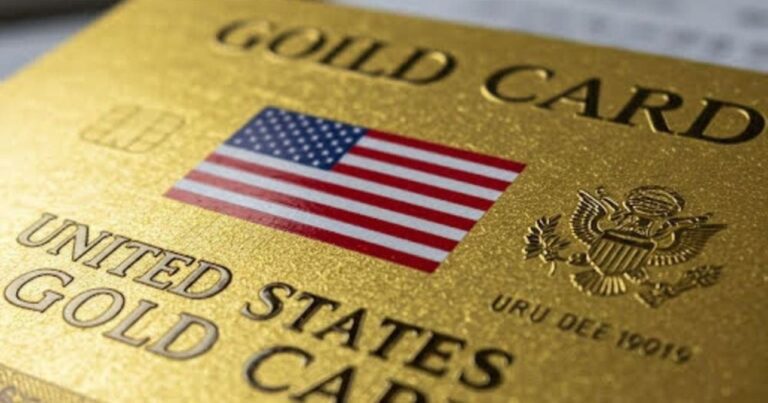🎧 Listen to This Article
President Donald Trump’s proposed $5 million “gold card” visa—intended as a shortcut to U.S. citizenship for the wealthy—could hit significant tax and legal obstacles. Although Trump has suggested the gold card won’t require Congressional approval, changing tax laws and immigration policies to accommodate the proposal would necessitate legislative action.
The Tax Challenge
Trump’s plan aims to allow gold cardholders to avoid U.S. taxes on income earned outside the country. However, experts argue that only Congress has the power to amend the Internal Revenue Code to create such an exemption. As it stands, U.S. tax laws consider individuals with U.S. residency or substantial presence liable for worldwide income tax. For the gold card proposal to work as advertised, these laws would need to be changed.
George Ganey, founding partner at Ganey Law Group, argues that Congress would also have to amend the Immigration and Nationality Act to create a new visa category for the gold cardholders. The proposed visa would grant holders, along with their spouses and children, the ability to live, work, and eventually apply for permanent residency in the U.S.
The EB-5 Investment Program
The gold card proposal overlaps with the existing EB-5 investment visa program, which allows foreigners to obtain U.S. residency by investing in qualifying projects. However, to end or modify EB-5 before it expires in 2027, Congress would again have to act. Immigration attorney David Lesperance suggests that using the budget reconciliation process to amend the tax code and provide an exemption for the gold card would be highly contentious and politically difficult.
Political and Practical Challenges
While the proposal’s concept has garnered attention, specific details remain scarce. The program’s $5 million price tag could attract wealthy individuals, but many experts believe that the gold card could fail to bring in the projected $5 trillion to pay down the U.S. deficit. The reality is that few individuals would be willing to spend such a large portion of their wealth on immigration options.
The gold card’s appeal would likely be limited to a small pool of ultra-wealthy individuals, with a significant portion of potential applicants coming from China. But even with these targeted investors, the program’s fiscal impact would likely fall far short of Trump’s ambitious goals.
Potential Implications for Big Tech
Despite the challenges, some speculate that big tech companies may see the gold card as a valuable tool for attracting global talent. However, experts like Ganey warn that the $5 million investment could effectively become a costly “signing bonus” for companies, a dynamic that could impact their interest in participating.
Ultimately, the success or failure of the gold card proposal will depend on whether Congress can align immigration reform with the tax exemptions needed to make it viable.
For further details, clarification, contributions, or any concerns regarding this article, please contact us at editorial@tax.news. We value your feedback and are committed to providing accurate and timely information. Please note that our privacy policy will handle all inquiries



